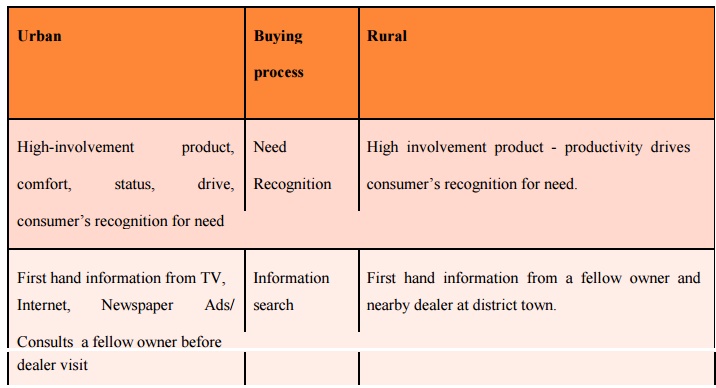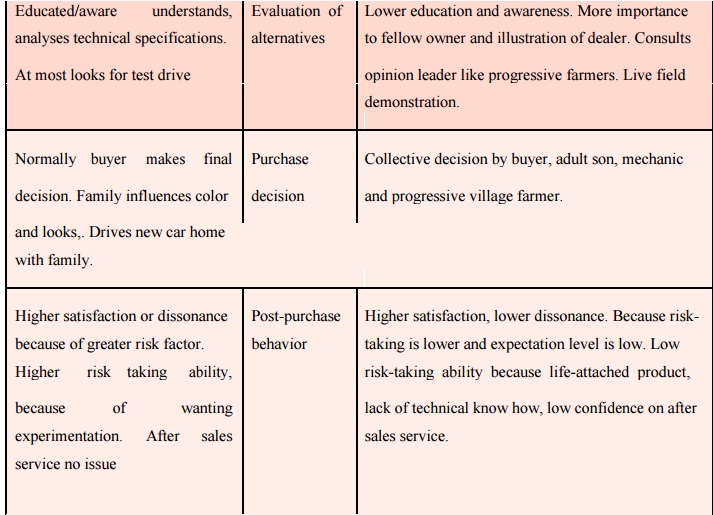Chapter: Business Science : Rural Marketing : Rural Market and Decision
Stages in consumer buying process
Stages in consumer
buying process
Need recognition
It is the difference
between the desired state and the actual state. A rural consumer first
recognizes his needs and accordingly thinks of purchasing the product. This is
the first step in the simple decision making model. For instance a farmer in a
rural area wants to purchase a colour television
Pre
purchase search
After the need has been
identified, the next step is to do a pre purchase search. Pre purchase search
is of two types namely internal search using ones memory and external search
which involves getting more information from friends or relatives (word of
mouth). Marketer dominated sources, comparison shopping, public malls etc. A
successful information search leaves a buyer with possible alternatives,
the evoked set. Here the farmer may go to a nearby city and visit a
showroom that has multiple products.
Evaluation
of alternatives
This third step is to
basically pick the best alternative from the available. In this step the buyer
needs to establish criteria for evaluation. He makes a decision about what
features he wants or does not want in the product. Accordingly ranks are given
to the alternatives. The farmer may look for products of Videocon, Onida, and
LG that are available with the dealers and finally select one of them. If he is
not satisfied with the choice made the buyer can return to the search phase.
Also marketers try to influence the buyer by µframing alternatives.
Purchase
decision
This is action that results in the purchase of the
product from among available alternatives. The customer may plan to purchase a
specific product that suits his needs and is within his budget, etc. This
includes product, package, store, method of purchase among other things.
For example the farmer may plan to go
for LGs Sampoorna Colour Television as it has a vernacular onscreen display,
better sound and superior picture quality. Besides it is priced at only Rs
8,500.
Purchase
This involves the actual purchase of the product.
However it may differ from the decision due to time lapse between the purchase
decision and the actual purchase or may also depend upon the availability of
the product.
Post
purchase behaviour
This is the final step in the simple model of consum
relationship with the seller does not come to an end with the purchase
especially in
the case of consumer durables. This is not an
important factor for FMCG. The farmer may see whether LG has a service centre
nearby in case the product needs servicing.
It is found that the main elements studied for
analyzing rural consumer decision making process are media exposure, purchase
aspects, behaviour of the consumer towards price, quality relations, credit and
influence of the retailer.


Related Topics